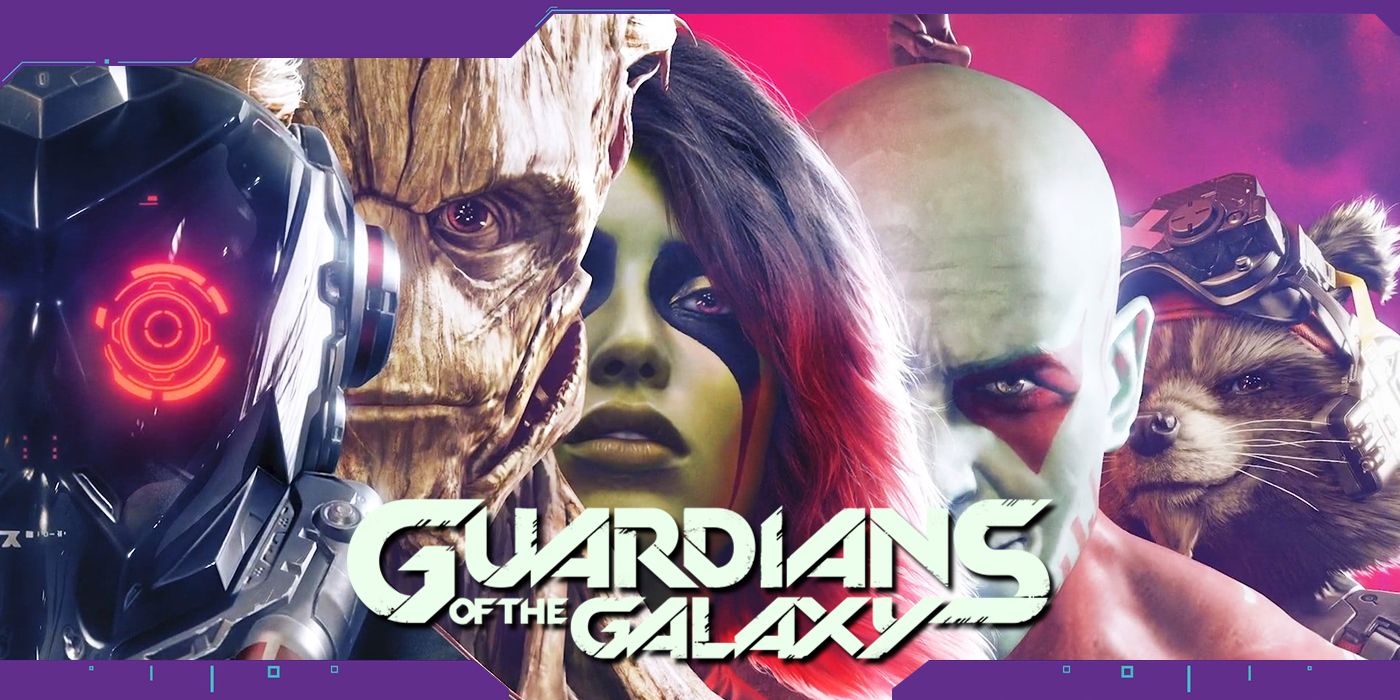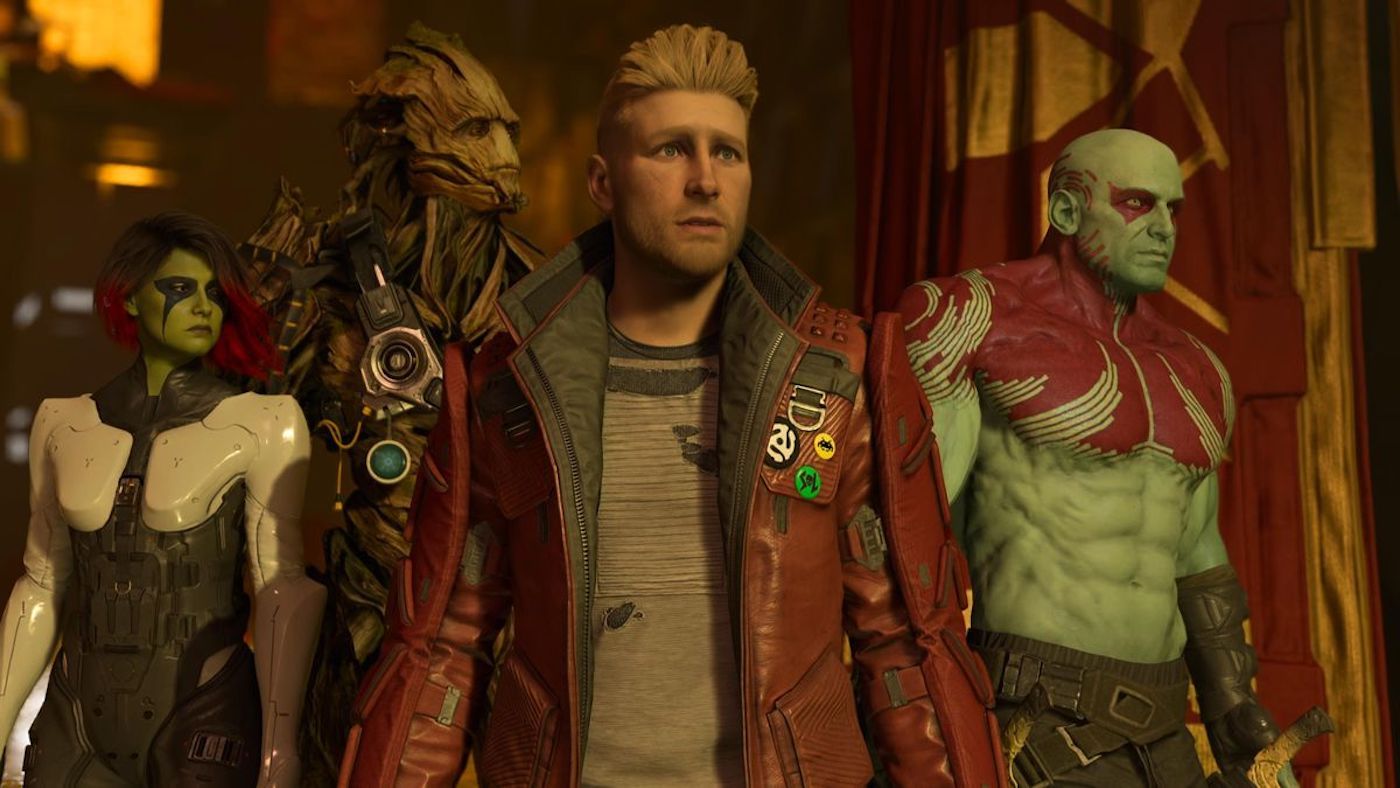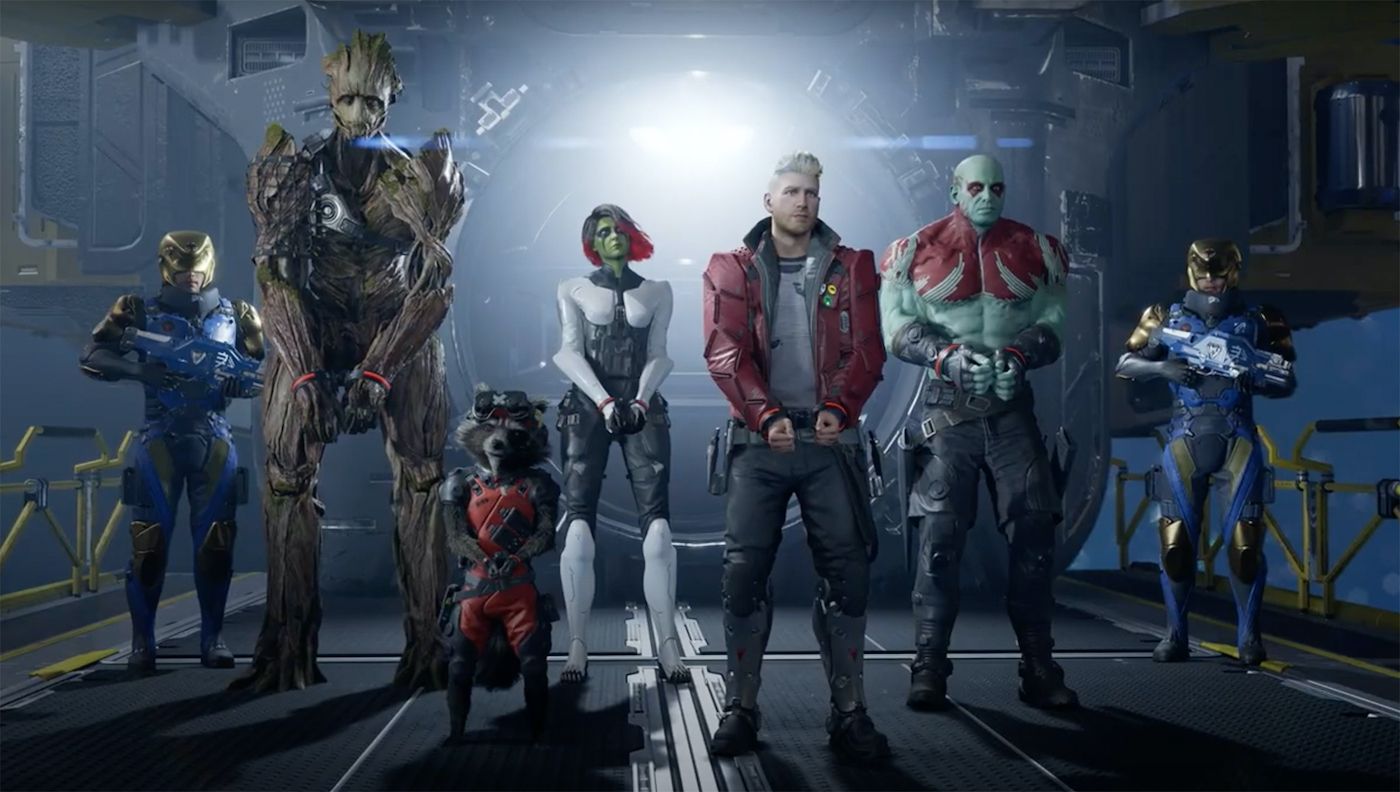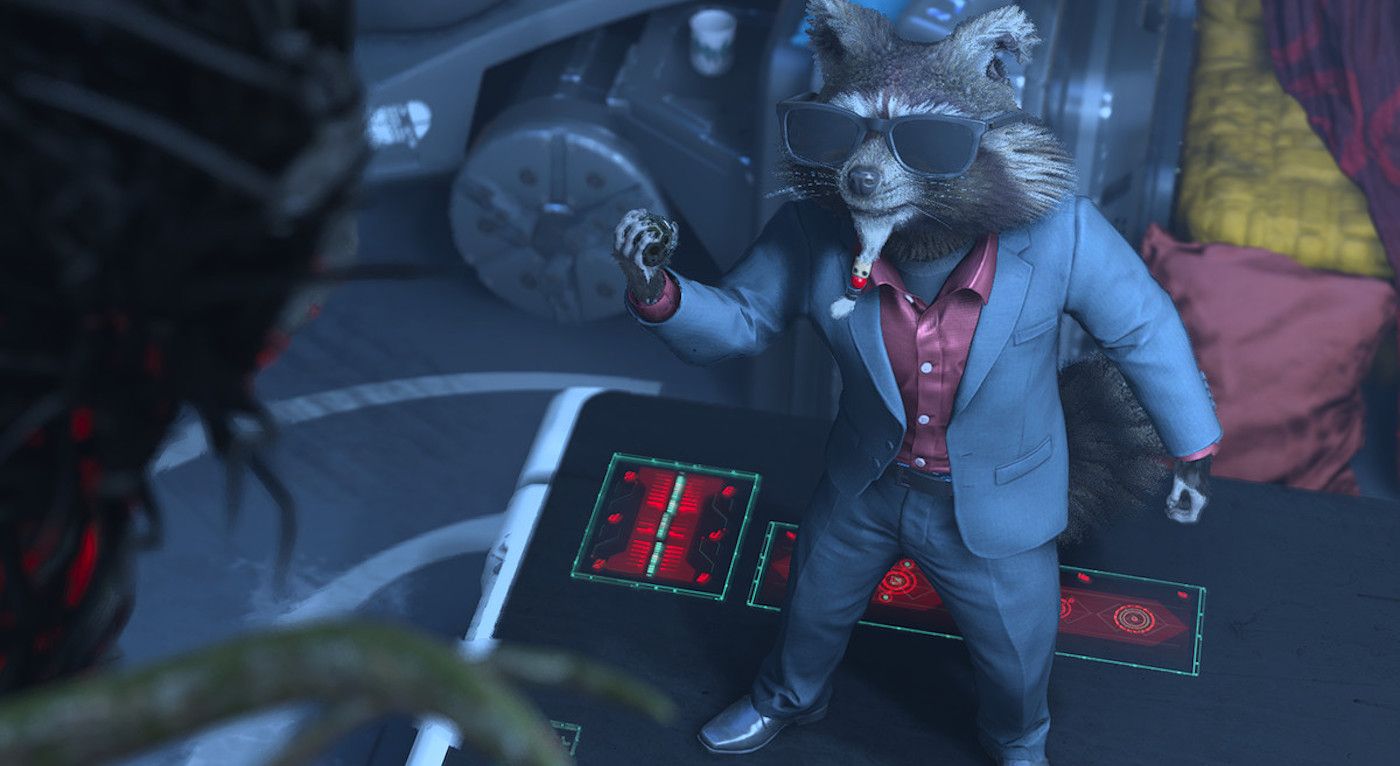With the juggernaut that the Marvel Cinematic Universe has become in the last decade as its influence has spread to various portions of pop culture and mediums, it comes as no surprise that there are many who are simply not fans of it. This has extended now to many game fans voicing their disdain for seeing so many great developers be "relegated" to tentpole projects from major multimedia franchises. That was definitely the sentiment when Marvel’s Guardians of the Galaxy was first announced, as the team behind it, Eidos Montreal, was a developer known primarily for their Deus Ex games.
One of the biggest chief complaints detectors often levy against the MCU is the oversaturation that has taken place over the years. At a time where superhero movies weren’t the norm, a prospect like the Avengers being built up over the course of multiple films was exciting. However, it’s been more than a decade since that began, and for many non-MCU fans, the realization that that type of presentation could make its way to games has become somewhat frightening.
Of course, the Marvel's Avengers game that came out in 2020 hasn't done the Marvel movement towards games any favors. What's funny about Avengers, specifically, is that it's at complete odds with Guardians of the Galaxy, which has just been released from the same publisher, and has been met largely with praise from critics and fans alike. From the moment you pick Guardians up, there’s clearly something special about the game. Most impressive is that it’s exciting in the way that it’s able to capture audiences on a number of different fronts. In a time where so many projects find themselves as part of a bigger universe, for the aforementioned non-MCU fans, this could be seen as the game’s biggest selling point.
So much of the MCU is about the bigger picture, and because of that, trying to keep up with multiple TV shows and movies throughout the year can become increasingly tiresome. This has become even more prevalent in the last year when seemingly all Marvel films got pushed back, and are now releasing within months of each other. With Guardians of the Galaxy, those feelings are entirely absent, and the end result is better off for it. For example, there's never an attempt made to try and set up a big bad for a later installment, but instead, the Guardian's mission is singularly focused. Instead of attempting an overarching branching narrative that spans multiple franchises, the developers and writers’ clear vision of the title is able to come across wonderfully, and it’s able to stand by itself with no extra ties to it.
In a very similar way to how Insomniac’s Spider-Man game from 2018 worked as a standalone title, so does Guardians of the Galaxy. Because of that, for those who might not like the MCU, whatever references might pop up to other properties aren’t overabundant to the degree that makes it feel like you’re missing out on important details if you haven’t rewatched the movies and TV shows for the fourth time. For many MCU fans, this is the type of element that they live for with this universe, but for non-MCU fans, this type of aspect can become increasingly oppressive if you aren’t always up to date.
For so long, character interactions and developments in the MCU have had to take place over the course of years, as you’d have to wait long periods between movies just to get some more substantial time with a particular character. Because of the medium that games are, that problem isn’t present. Guardians of the Galaxy has more in common with a television show or comic book, in that it’s able to focus on a single story and devote a large amount of energy towards it. On top of that, thanks to the increased playtime, the interactions with your team make for one of the best portions of the game, as you’re able to spend time with them on your ship and interact with them outside of it while you all explore various planets. This is an element that’s completely absent from the MCU, as a two-and-a-half-hour runtime only allows so much.
Along with the fatigue that comes with many of the elements that the MCU employs, the implementation of the origin story is something that’s seemingly omnipresent in all of the various phases that they’ve embarked on. That aspect could have easily made its way into the game, as Marvel could have gracefully given a nudge to Eidos Montreal and Square Enix in hopes to try and tie their Avengers game into this one. Thankfully that’s not the case, and for those looking for singular experiences without any “baggage” tied to it, Guardians of the Galaxy is the perfect example. The game drops you in at a point where the Guardians have known each other for varying degrees of time. The two with the shortest time knowing each other are Drax and Gamora, and one of the best aspects of the game is seeing these relationships carefully navigated and explored over the course of 18 hours.
One of the largest complaints against video games is the writing. This is especially true when it comes to comedic writing in games, as it becomes incredibly difficult to find actual funny titles in the medium. This is in contrast to the MCU, where one of the chief complaints people have against the films is the "quippy" one-liners that are so often littered throughout the movies. Thankfully, Guardians of the Galaxy doesn’t utilize it to that degree, which comes as an even bigger surprise when you consider how comedic the team is.
There's a clear level of nuance when it comes to the handling of these characters that you also don't often see in their film counterparts. These performances aren't characterizations of their movie versions, and the writing along with it goes above and beyond to expand on them all in ways that the film simply doesn't have the time for. All of the main Guardians, particularly, Peter, Drax, and Gamora get such great moments to shine, and much of it all comes from payoffs that are built up over the course of the game. It's what you'd expect after multiple movies in a series, and for those coming in who aren't fans of the MCU, it's great to have an experience like this work as well as it does here.
There’s a reason things like FOMO (fear of missing out) exist, and when an entity like the MCU takes up such a large mind share of the population, it can become increasingly difficult to ignore it. That’s why a game like Guardians of the Galaxy is the perfect type of MCU game for non-MCU fans. For many people, they want singular, one-off experiences that work without prior knowledge, and even though the MCU often excels greatly in that regard, it can become overwhelming. With Guardians of the Galaxy, that sense isn’t there, but there’s enough world-building and context from other areas of the Marvel universe that it’s never overbearing, and welcoming to fans looking to get a taste of what the MCU offers without having to dive headfirst into the deep end.
You aren’t expected to understand all the references, and you aren’t punished because of it. Getting to know your teammates, and traveling to various planets while inhabiting this large universe acts as a big enough departure from the imposing aura that the modern MCU can sometimes hold. There are a substantial amount of world-building and meaningful character interactions that make Guardians of the Galaxy a standout in the medium, and it's a title that is somehow able to carefully branch the gap for non-MCU fans who might be looking for an easy entry point into the greater Marvel universe, all without the lengthy prerequisite requirements that come along with it.




